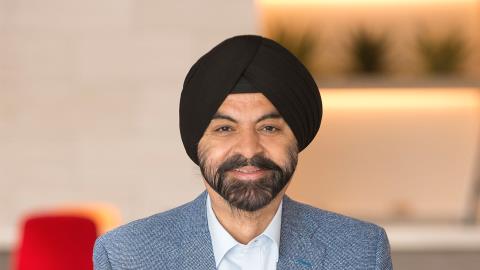Ajay Banga Highlights Strategic Shift to Faster, Simpler, and Impact-Oriented Operations at World Bank
In a landmark speech at the MF/World Bank’s annual meetings, President Ajay Banga laid out a sweeping vision for the institution’s future, emphasizing the need for a “faster, simpler, and more impactful” approach to development.
As the World Bank approaches its 80th anniversary, President Banga highlighted the urgency of addressing a litany of complex global issues—poverty, climate change, conflict, and pandemics—through a comprehensive, modernized approach.
This year’s plenary speech underscored the World Bank’s pivot from its traditional role of reconstruction towards an institution geared more strategically towards development. President Banga, who took office 16 months ago, emphasized the progress made in increasing the Bank’s lending capacity, streamlining processes, and making partnerships across multilateral development banks more robust.
He noted that these reforms were already yielding results, with average project approval timelines reduced from 19 to 16 months, with plans to reach a 12-month target by mid-2025.
The President’s speech also addressed the urgent need for private sector involvement, with an estimated $4 trillion required annually to meet global development goals. Banga introduced several initiatives aimed at reducing investor risk, including new regulatory support frameworks and risk-sharing mechanisms for foreign currency exposure.
“The private sector must be more than a partner—it needs to be a multiplier of our efforts,” he stated, emphasizing the role of innovative financing tools, such as the Livable Planet Fund, which leverages both public and private capital to tackle climate challenges.
A central element of his message was the ambitious goal to boost infrastructure and job creation across emerging markets. The World Bank aims to bring electricity to 300 million people in Africa by 2030, a project developed in partnership with the African Development Bank and the Rockefeller Foundation.
In addition, he emphasized a broader employment initiative, noting the urgent need to create opportunities for an estimated 1.2 billion young people entering the workforce, especially in high-growth regions where economic expansion has lagged behind population growth.
President Banga’s remarks also signaled a shift toward more data-driven accountability, with the Bank’s new corporate scorecard slimmed down from 150 metrics to 22, allowing clearer visibility into the Bank’s impact. The Bank has also committed to transparency, sharing sovereign and private sector risk data to support investment confidence and attract global capital.
The scope of these reforms reflects President Banga’s vision of an agile institution, ready to take on 21st-century challenges while deepening ties with other development banks and increasing funding through IDA for the world’s poorest countries.
As President Banga succinctly put it, “Development delayed is development denied.” For the World Bank, this shift in strategy and operations represents a significant evolution towards creating a more resilient and prosperous world, with the institution at the forefront of sustainable and inclusive growth.








